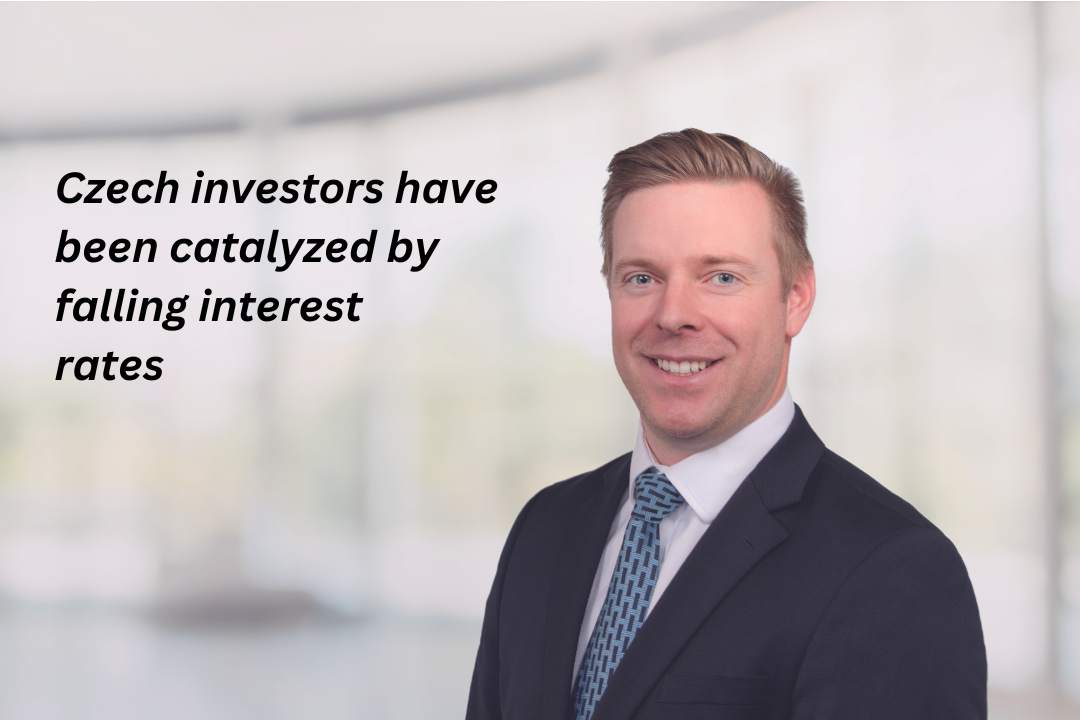Volume was down last year, of course, and foreign money isn’t flooding back yet. But I hear more and more often about new activity. People also say something is shifting.
Volume is down significantly from where it was at the peak even though the domestic market has sustained liquidity to a degree. Ongoing sale processes in 2024 have generally had quite a high level of success and interest, at least the ones we’ve been a part of or that we have information about from the market. It may be down to the type of product that’s coming out. It’s predominantly the domestic market that’s looking for product. Local investors have been catalyzed a bit because keeping money in the bank at the moment doesn’t produce the type of returns it did before last year.
You think that’s really had an impact?
Yes, of course. Whereas before you could get 6.5% or 6.25% just by leaving cash in the bank, you could deliver returns to the investors without doing too much. That’s come down to around 4.5%, so all of a sudden, your risk-free money in the bank is returning less than you need to return to your investors. You have to do something with the money again. Czech investors have been catalyzed by the base rate in the country going from 7 to 5.25%.
Do you think the war is helping to prop up the discount for real estate prices in Prague compared to Western Europe?
The answer is probably yes. I think the Ukraine war has taken us back a few years in terms of geopolitical view of this part of the world. People should get a map out a little more often and actually look at the real distances that they’re concerned about. I think there’s a perception that we’re five minutes away from tanks rolling through the border. Whereas obviously actually the distance reality is quite different.
I think there’s still more of a psychological than a justifiable spread. There’s this mental block investors have that says, “if it’s east of Germany it should be at least 50 basis points higher.” I’m not 100% sure that the underlying fundamentals necessarily justify that perceived need for a spread.
We’ve gotten used to speaking about the huge role Czech investors have assumed in the market. What does that really mean though if the overall spend by real estate investors is so low? Are they really growing in influence, or just in relative terms?
We were analyzing this recently and looked at the average domestic expenditure between 2017 and 2023, which over that seven-year period was €1.007 billion. Domestic investors had a dominant year in 2023 in terms of volume percentage, and everyone got very excited about how liquid the Czech market is, but in absolute terms, Czech investors spent 3.3% less their seven-year average. In 2018, domestic expenditure was €1.6 billion versus last year which was just over €1 billion, so last year wasn’t even the highest expenditure by domestic investors — by quite some way. On the other hand, Czech investors represented 82% of the market in 2023 and so overall the domestic investor base has ‘saved the day’ to a huge degree by maintaining activity and market liquidity in a period of re-patriation of capital from international investors.
It’s just that they were suddenly the biggest fish in a pond that had shrunk a lot in size.
This is not to take away anything at all from Czech investors and the vital role that they played in 2023. We have calls every few weeks with Savills investment colleagues from around Europe. Everyone is very impressed with the liquidity and the transactions that are still happening, the level of activity and the pricing. You didn’t really see that in many other European countries last year. This will also be seen as a benefit when the international investors start to return, as they will take comfort from the fact that the Czech market maintains a high degree of resilience and self-sufficiency, which is crucial when they consider their own exit strategies and underwriting. It can also be overlooked that whilst Czech investors maintained a fair degree of consistency last year in terms of EUR deployed in Czech, they also were active in other countries in CEE, especially Poland, which has been a recipient of a decent amount of Czech funds over the last few years.
The Star Capital Finance acquisition Savills was involved in comes to mind…
Exactly. They just bought six different shopping centers in six different cities for €285 million, with 219,000 sqm of GLA. It’s another great example of Czech domestic money going north into Poland. First it was the Czech funds, but they’ve been followed by Czech private investors. You of course still have to be careful venturing north, because risk does equal return, and you definitely see the higher yields there, however with good underwrite and sensible business planning I am confident that there are some excellent deals to be done.
You mentioned the higher risks. Are you talking about the liquidity risk? The fact that most investors have left, except for regional ones like the Czechs?
That’s exactly it. That’s one of the big drivers of the yield spread between Czechia and Poland. If they were to bring in the legislation to open up the domestic investment market for retail investors and qualified investors, the liquidity risk in Poland would probably just evaporate.
Also in ThePrime






